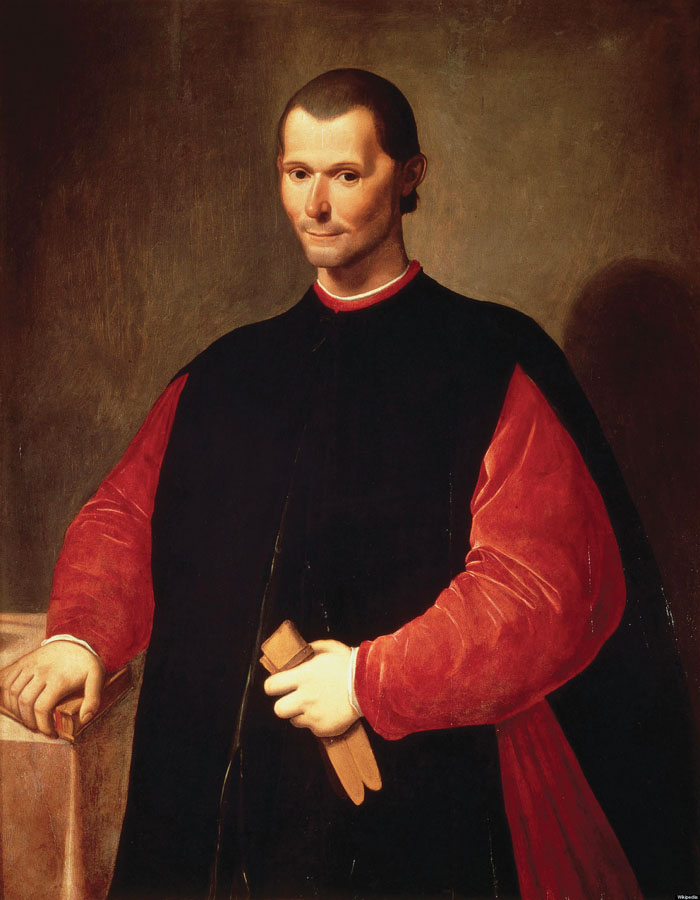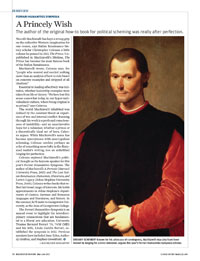In Review
 DREAMY SCHEMER? Known for his advocacy of cunningness, Machiavelli may also have been moved by longing for a civic redeemer, argues this year’s Ferrari Humanities Symposia scholar. (Photo: Science History Images/Alamy)
DREAMY SCHEMER? Known for his advocacy of cunningness, Machiavelli may also have been moved by longing for a civic redeemer, argues this year’s Ferrari Humanities Symposia scholar. (Photo: Science History Images/Alamy)Niccolò Machiavelli has kept a strong grip on the collective Western imagination for one reason, says Italian Renaissance history scholar Christopher Celenza: a little volume he penned in 1513, The Prince. Unpublished in Machiavelli’s lifetime, The Prince has become the most famous book of the Italian Renaissance.
Machiavelli wrote, Celenza says, for “people who wanted and needed nothing more than an analysis of how to rule based on concrete examples and stripped of all idealism.”
Essential to leading effectively was imitation, whether leadership examples were taken from life or history. “We have lost this sense somewhat today, in our hyper-individualistic culture, where being original is so prized,” says Celenza.
The world Machiavelli inhabited was defined by the constant threat or experience of war and internal conflict. Running through his work is a profound consciousness of instability—and an unachievable hope for a redeemer, whether a prince or a theoretically ideal set of laws, Celenza argues. While Machiavelli’s name has become synonymous with unscrupulous scheming, Celenza catches perhaps an echo of something more lofty in the flinty-eyed realist’s writing, too: an unfulfilled longing for perfection.
Celenza explored Machiavelli’s political thought as the keynote speaker for this year’s Ferrari Humanities Symposia. The author of Machiavelli: A Portrait (Harvard University Press, 2015) and The Lost Italian Renaissance: Humanists, Historians, and Latin’s Legacy (Johns Hopkins University Press, 2005), Celenza writes books that reflect his broad range of interests. He holds appointments in Johns Hopkins’s departments of classics, German and Romance languages and literatures, and history. In the summer, he’ll move to Georgetown University, as the dean of Georgetown College.
The Ferrari Humanities Symposia is an annual event to highlight the interdisciplinary connections that are fundamental to a liberal arts education. University Trustee Bernard Ferrari ’70, ’74M (MD) and his wife, Linda Gaddis Ferrari, established the symposia in 2012. Previous speakers have included Jane Tylus, Anthony Grafton, and Stephen Greenblatt.
—Kathleen McGarvey

